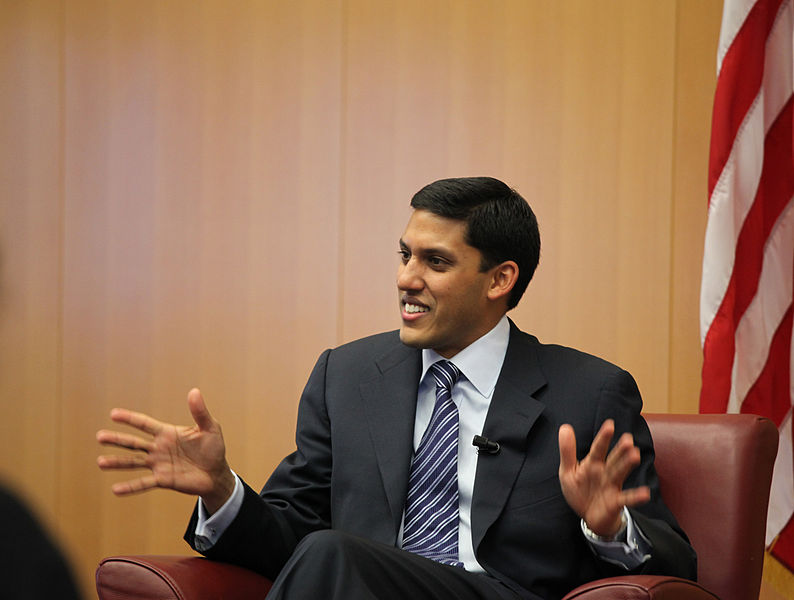On the day a key Senate committee heard testimony concerning President Barack Obama’s $6.2 billion emergency funding request for aid to combat Ebola, the head of the government’s top humanitarian agency stressed the need for ongoing assistance in stricken West African countries.
Speaking at a Brookings Institution event Wednesday, Dr. Rajiv Shah, administrator of the United States Agency for International Development, said that shielding Americans from Ebola begins with eradicating the deadly disease in Liberia, Sierra Leone and Guinea.
“In order to protect the American people from Ebola, we have to be effective at controlling it in West Africa,” he said.
Shah recently returned to the U.S. from West Africa, where he witnessed the impact of the crisis firsthand. In response to the outbreak, USAID has coordinated a comprehensive campaign in the affected countries. The agency’s efforts have focused on building new medical centers, bringing in more supplies, strengthening emergency response systems, training medical personnel and raising awareness of the disease.
There are about 3,000 active Ebola cases, Shah said, though there are no active cases in the U.S. Even though the number has declined in some areas since September, when a strong international campaign was mounted, Shah said it’s still possible that Ebola infections could spike.
He said that’s what happened in May and June, when urban transmission exploded in Monrovia, the capital of Liberia.
“Even if we’re fortunate and by the spring or the summer you have very low levels of Ebola,” he explained. “We’ll still need proper, coherent disease control for many months after that point to ensure that you’re not going to see a resurgence.”
Obama’s emergency funding request includes $2.9 billion that would go toward assisting USAID’s and the State Department’s efforts to fight Ebola in West Africa. The largest chunk would be used to train health care workers, conduct community outreach and provide supplies.
“The task before us is immense, but we believe that we – in concert with our international partners and the people of West Africa – can help stop this unprecedented epidemic,” said Heather Higginbottom, deputy secretary of the State Department, in prepared remarks.
Much of the remaining money would go for research and development, as well as ensuring the U.S. is equipped to handle Ebola cases in this country.
The emergency funding request discussed at Wednesday’s Senate Appropriations Committee hearing could end up being included in the big spending bill that Congress is expected to approve next month.
Shah believes there’s a misconception about how much the nation spends on foreign aid. In reality, it’s only about 1 percent of the total budget. He thinks if more Americans realized the impact this money has on helping others around the world, constituents would be more inclined to support funding.
“I really do hope the U.S. Congress supports the emergency request, because that’s what it’s going to take to sustain our ability to do this for a full year,” he said.

